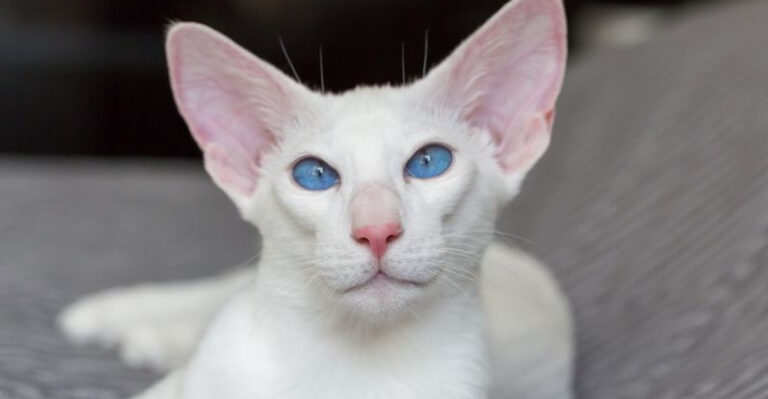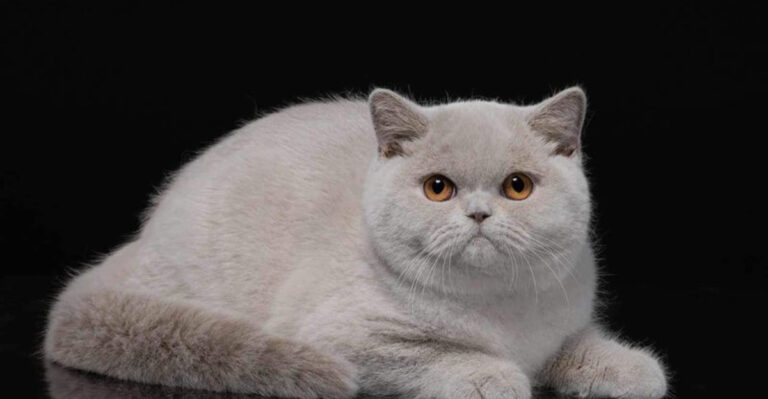How To Tell If Your Cat Is Stressed And What To Do About It
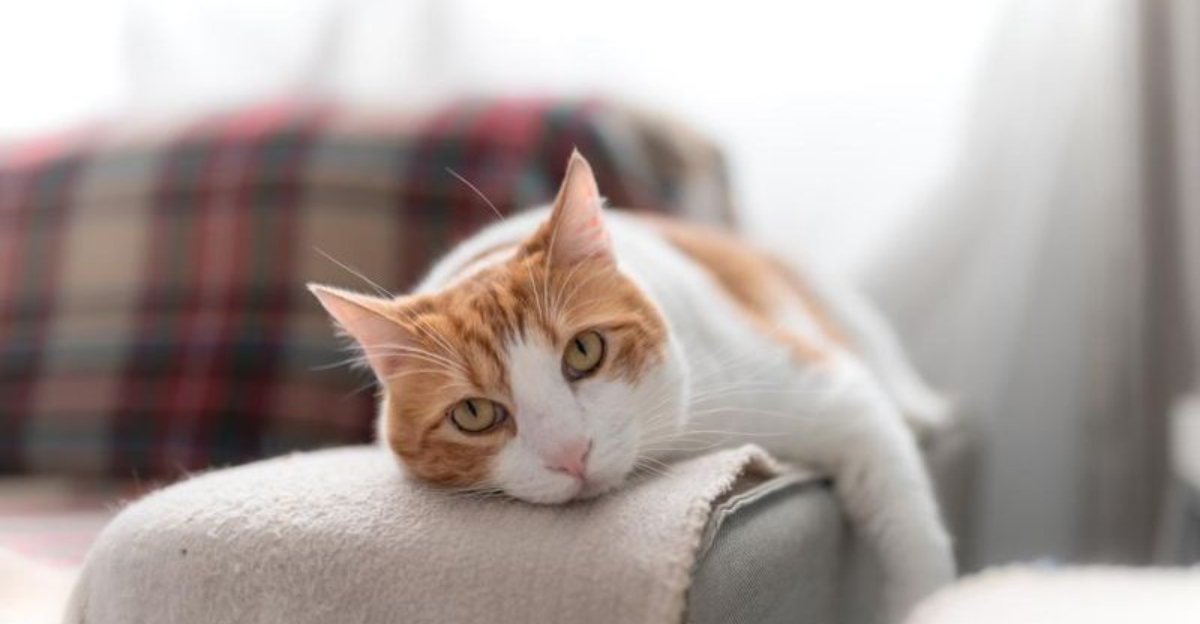
Ever caught your fluffy friend acting a tad too aloof or skittish? Cats, though masters of disguise, sometimes reveal subtle signs of stress.
Recognizing these signals not only helps keep your feline happy, but it also strengthens your bond. Let’s uncover the mysteries behind those whiskers and purrs, and share a few laughs along the way!
1. Sudden Aggression
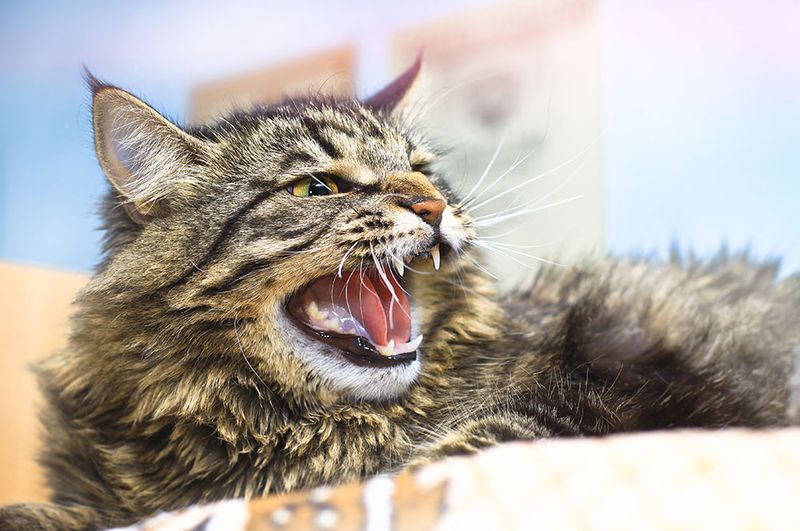
A usually calm kitty suddenly hissing or swatting? It’s more than just a bad fur day. Unexpected aggression can be a feline’s way of saying, “Hey, something’s not right here!”
This behavior might stem from environmental changes or an underlying health issue. Keep an eye on your cat’s routine and surroundings to identify triggers. A gentle vet check-up might just be what the doctor ordered!
2. Over-Grooming
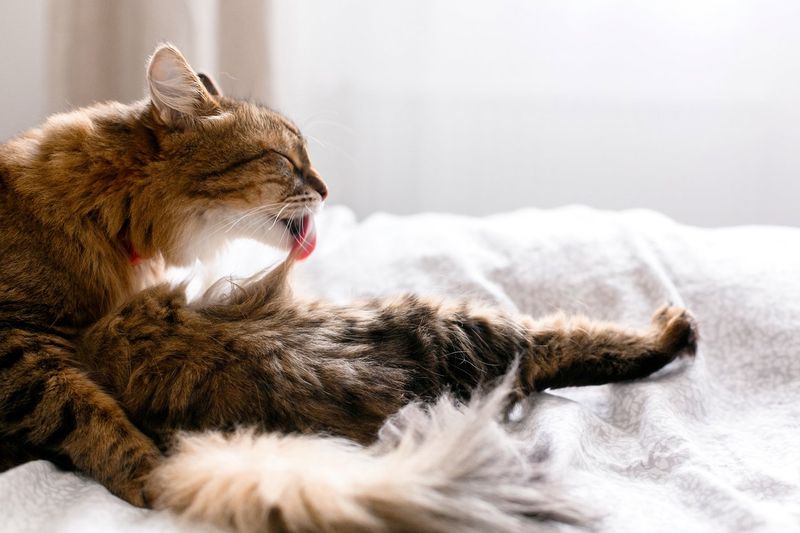
Is your cat channeling its inner beauty guru a bit too much? Over-grooming can lead to bald spots and an irritable kitty. It’s their equivalent of biting nails.
A stressed-out cat might groom excessively if they’re anxious or bored. Introduce new toys or playtime to distract them. If it persists, consult your vet to rule out medical issues.
3. Decreased Appetite
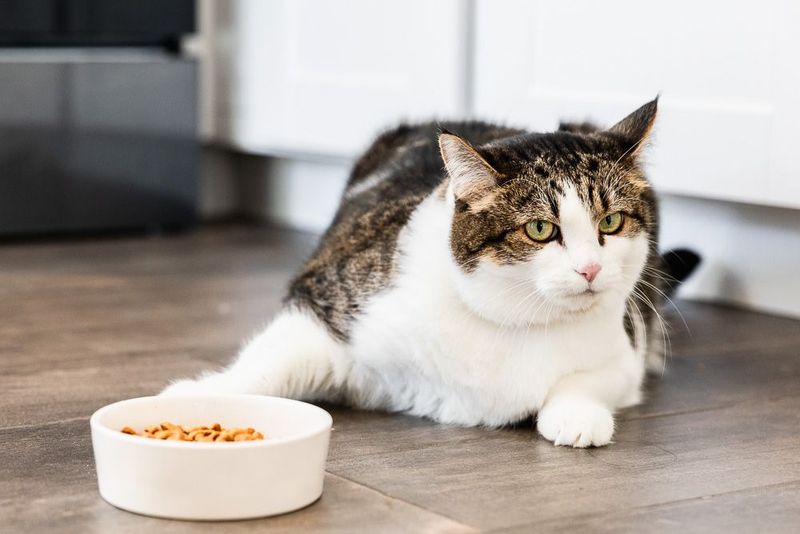
Has your cat suddenly lost its appetite? Skipping meals isn’t just a sign of pickiness. Stress can make even the tastiest treats seem unappealing. Look for changes in environment that might be causing this.
Ensure their feeding area is calm and consistent. If they continue to ignore their food, a vet visit is wise to rule out any health problems.
4. Isolation
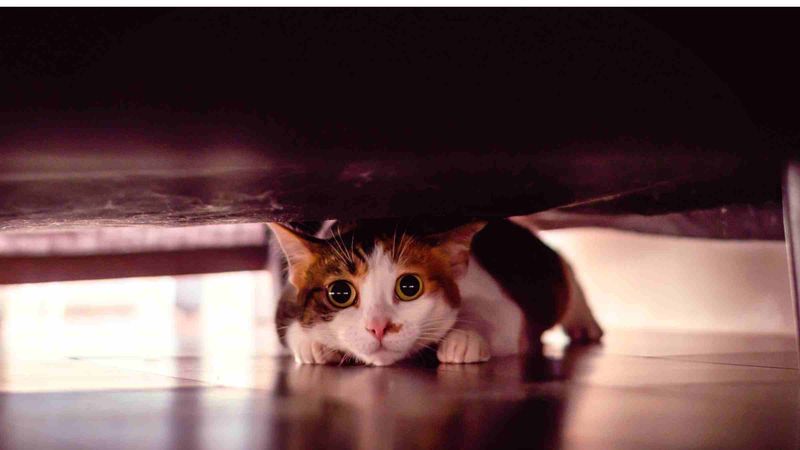
Cats are known for their independence, but too much solitude can signal stress. A once social kitty hiding away might feel overwhelmed.
Check for household changes or new pets that might be intimidating them. Offering gentle reassurance and a quiet space can help your cat feel safe and reduce stress.
5. Excessive Meowing
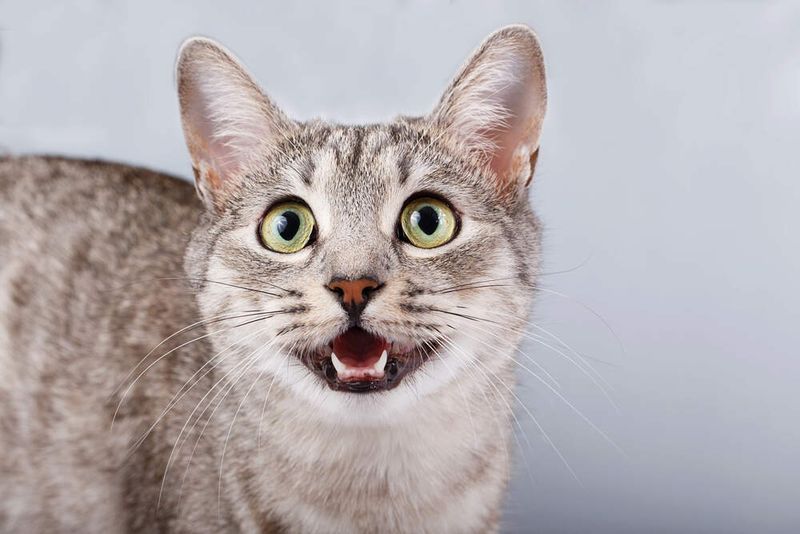
Is your feline friend suddenly channeling their inner opera singer? Excessive vocalization might be their way of saying, “Help! I’m stressed!” Changes in routine or environment can trigger this behavior.
Spend quality time with your cat and ensure their needs are met. If meowing persists, it might be time for a vet consultation to rule out underlying issues.
6. Litter Box Avoidance
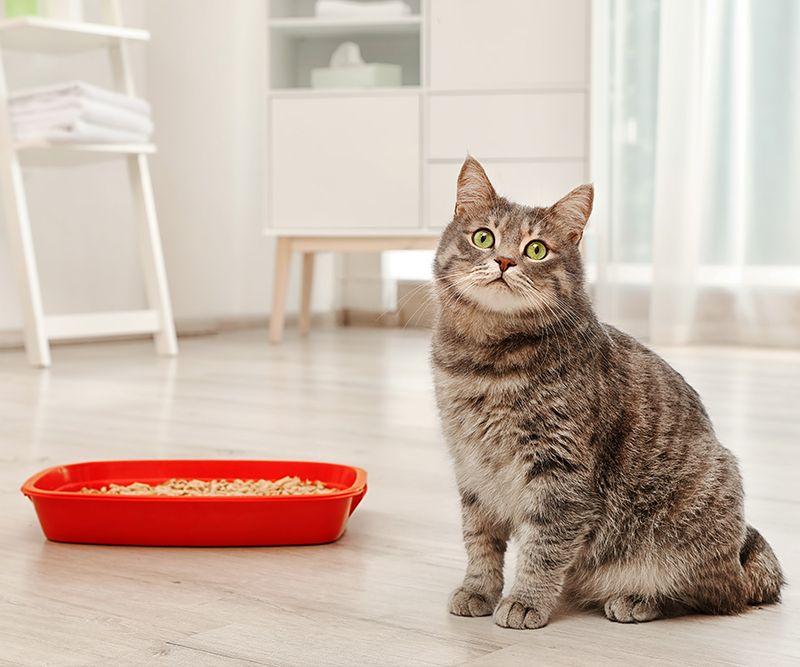
A cat that suddenly refuses its litter box is waving a red flag. This isn’t just a cleanliness issue. Stress can cause cats to avoid their usual bathroom spot. Changes in litter type or location might be the culprit.
Keep the box clean and in a quiet place to encourage use. Persistent issues warrant a vet check to rule out medical causes.
7. Scratching Furniture
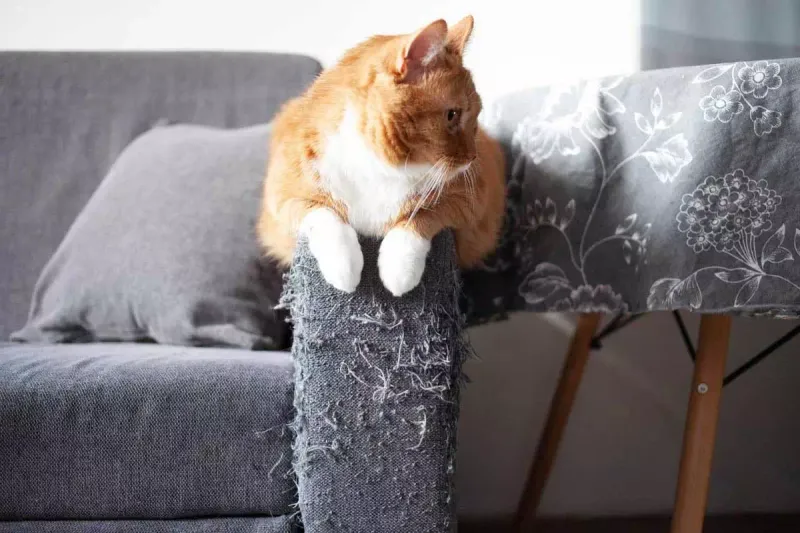
Is your couch suddenly your kitty’s new favorite scratching post? Furniture scratching can be a stress signal.
Cats scratch to mark territory or relieve tension. Check if anything in their environment might be causing anxiety. Provide ample scratching posts and consider re-evaluating their space and routine to reduce stress.
8. Changes In Sleep Patterns
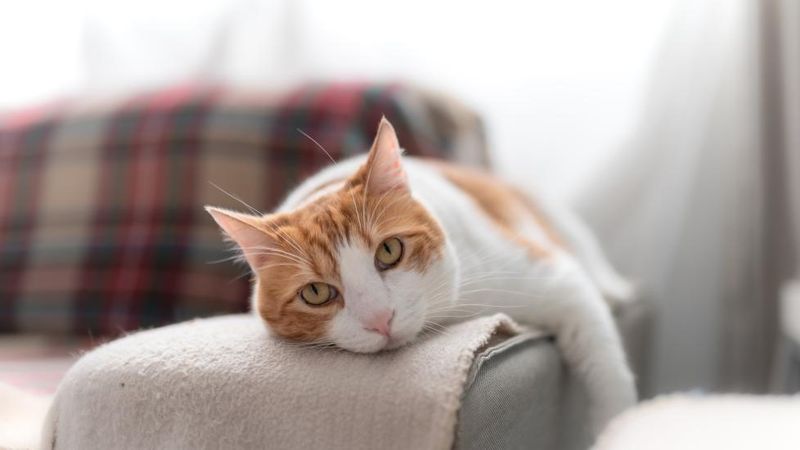
Is your cat sleeping the day away or up all night? Changes in sleep patterns might indicate stress. Cats are creatures of habit, so disruptions in their routine can unsettle them.
Ensure they have a cozy, quiet spot to snooze, and try to maintain a consistent schedule. If disruptions continue, consult your vet.
9. Pacing Or Restlessness
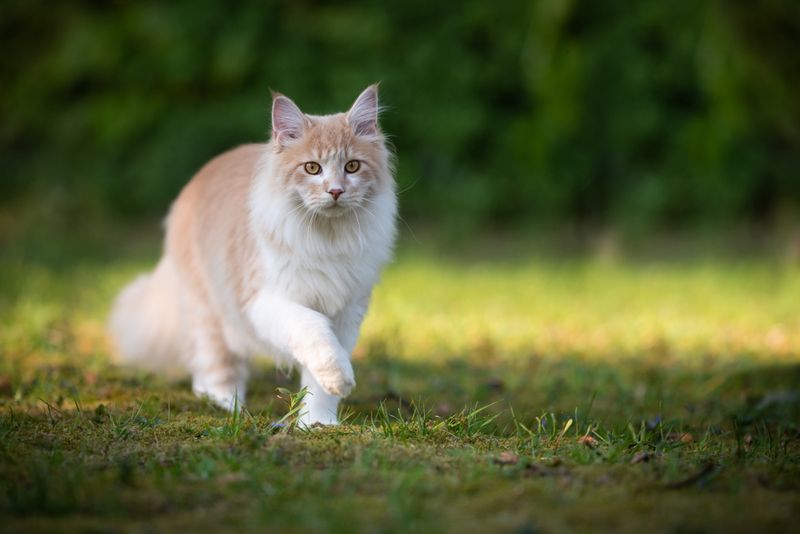
A cat that can’t seem to sit still might be stressed. Pacing or restlessness can indicate anxiety. Check for triggers like loud noises or unfamiliar guests.
Creating a calm environment and providing interactive toys can help redirect their energy and ease stress.
10. Dilated Pupils
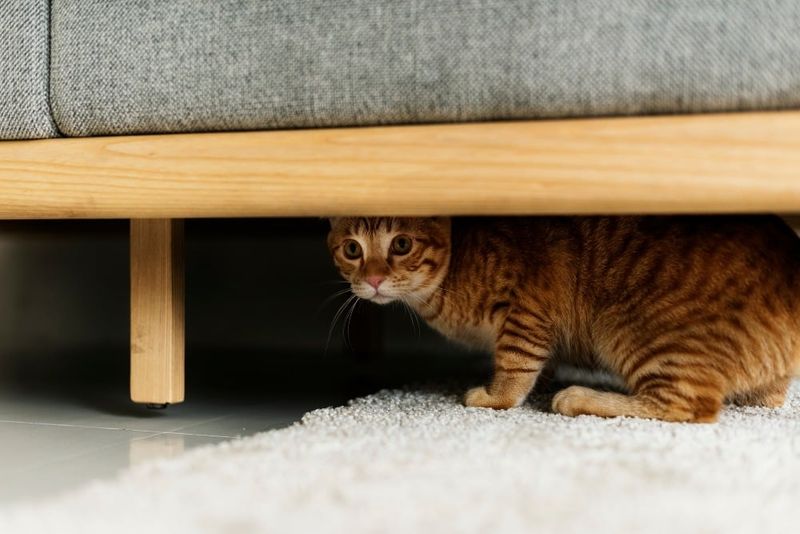
Are your cat’s eyes wide like saucers? Dilated pupils might be a sign of stress or fear. Observe their surroundings for stressors like loud noises or other pets.
A comforting environment and a gentle approach can help them relax. If this persists, consulting a vet is a good step.
11. Excessive Shedding
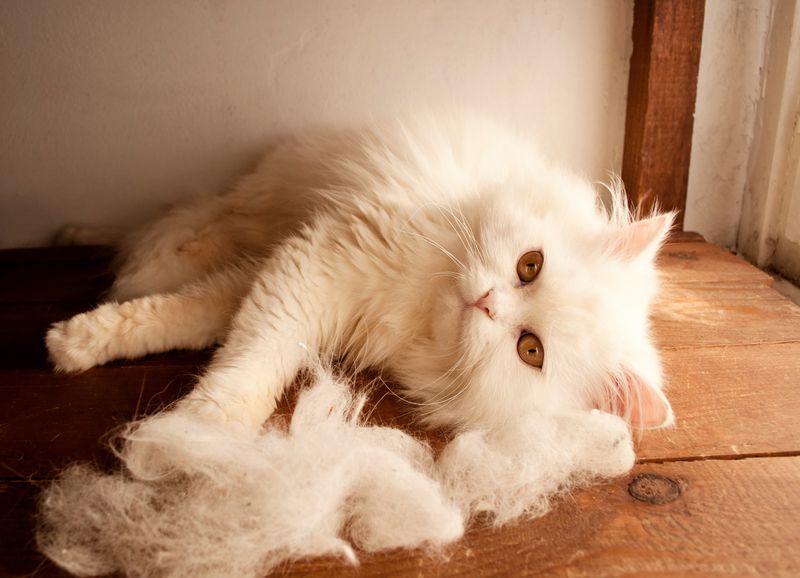
Is your vacuum working overtime thanks to your cat? Excessive shedding can be more than just seasonal. Stress can cause cats to shed more as a response to anxiety or environmental changes.
Regular grooming and a calm atmosphere can help manage this. Persistent shedding might need a vet’s attention to rule out health concerns.
12. Yawning Excessively
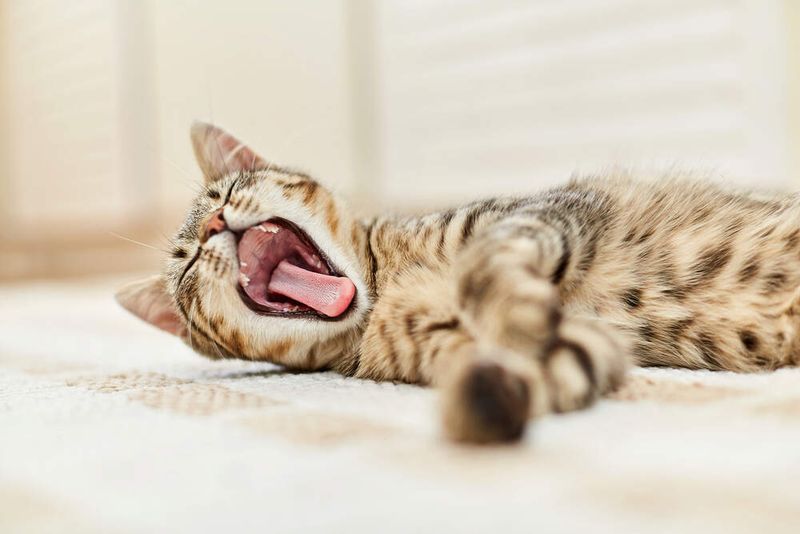
Does your cat seem to yawn like they’re starring in a cat-nap commercial? Frequent yawning can be a stress signal. It might indicate that they’re anxious or just plain bored.
Engage them with toys or new activities. Persistent yawning can warrant a look into their environment or health by a vet.
13. Panting Or Heavy Breathing
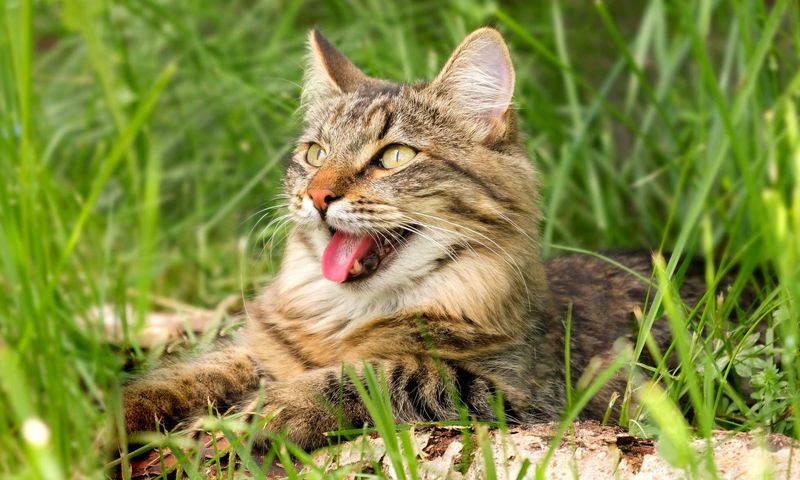
Cats panting is rare, so if your feline suddenly acts like a dog, that’s a clue! Panting can indicate stress or overheating. Make sure they have a cool space and water.
If it continues, a vet visit is essential to check for any respiratory issues or other health concerns.
14. Flattened Ears
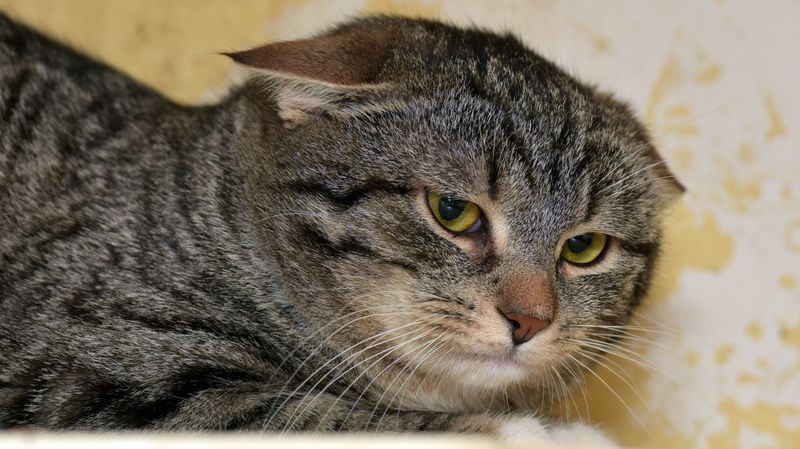
Notice those ears pinned back? Flattened ears can indicate fear or stress. This defensive posture means they’re on high alert. Identify any potential stressors like loud noises or strangers.
Provide a calm environment and reassurance to help ease their worries. Persistent ear flattening may need professional advice.
15. Clinginess Or Separation Anxiety
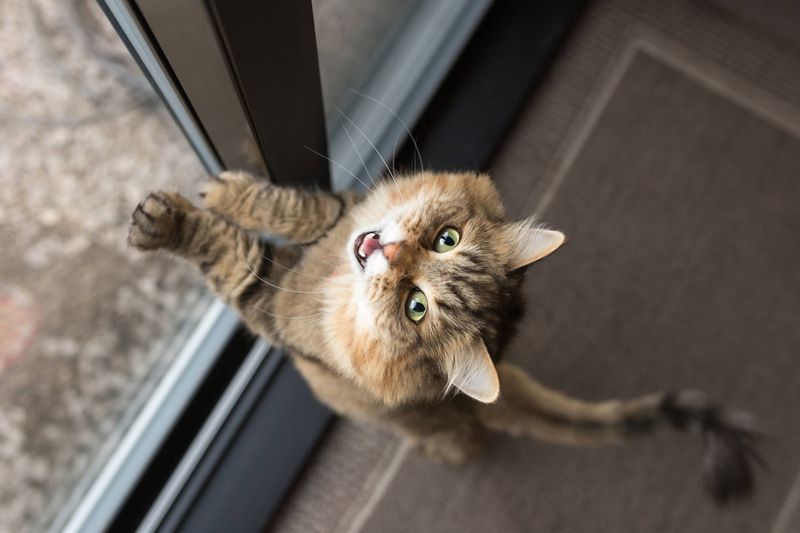
Is your cat suddenly your shadow? Clinginess might be a sign of separation anxiety or stress. Changes in routine or environment can trigger this behavior.
Spend quality time with them and consider interactive toys to keep them engaged. If anxiety persists, consult your vet for further advice.




